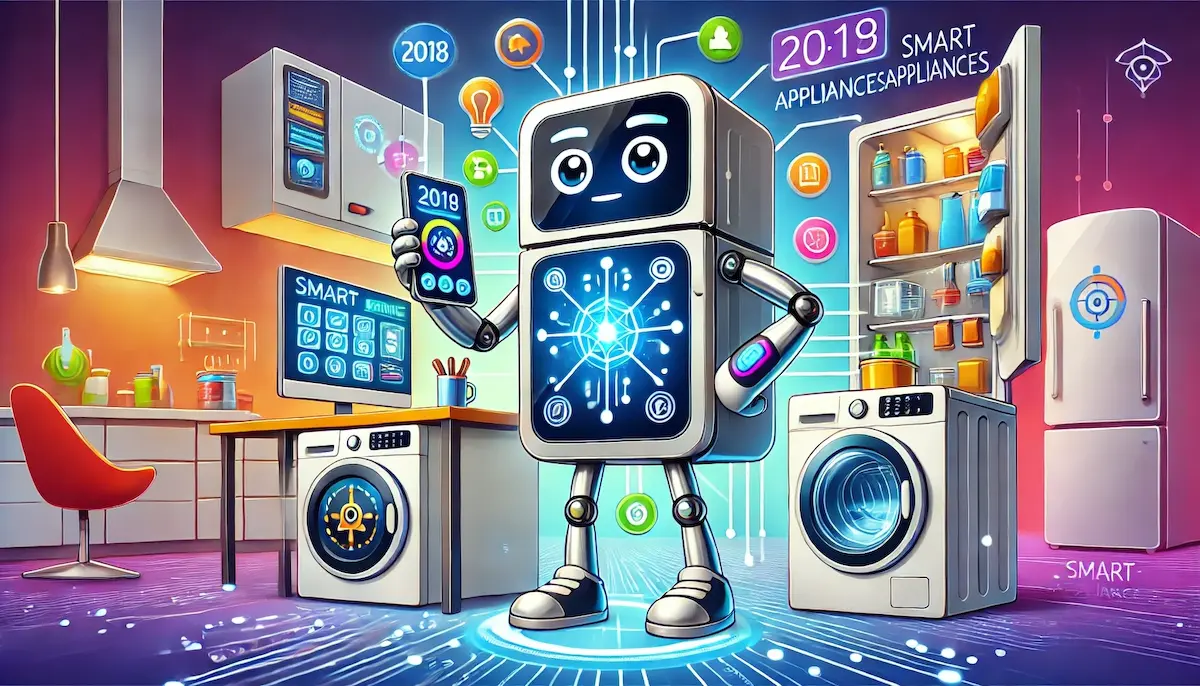Smart appliances are innovative devices equipped with advanced technology to make everyday tasks more convenient, efficient, and enjoyable. These appliances connect to the internet and other devices, allowing users to control and monitor them remotely through smartphones, tablets, or voice assistants. From refrigerators that can order groceries to washing machines that suggest optimal wash cycles, smart appliances are transforming how we interact with our homes.
Key Features of Smart Appliances
Connectivity
Smart appliances connect to Wi-Fi or Bluetooth networks, enabling communication with other smart devices and the internet. This connectivity allows users to control appliances remotely, receive notifications, and integrate them into smart home ecosystems.
Automation
Automation features enable smart appliances to perform tasks with minimal user intervention. For instance, a smart thermostat can adjust the temperature based on the time of day, occupancy, or weather conditions. Similarly, a smart oven can preheat itself based on a recipe’s instructions.
Remote Control and Monitoring
Users can control and monitor their smart appliances from anywhere using mobile apps. This feature is particularly useful for adjusting settings, starting or stopping operations, and receiving real-time updates on appliance status.
Energy Efficiency
Many smart appliances are designed to optimize energy usage, reducing both utility bills and environmental impact. They can provide insights into energy consumption patterns and suggest ways to conserve energy. Some appliances, like smart thermostats and washing machines, adjust their operation to off-peak hours to save energy.
Integration with Voice Assistants
Smart appliances often integrate with voice assistants like Amazon Alexa, Google Assistant, and Apple Siri. This integration allows users to control appliances using voice commands, adding an extra layer of convenience.
Examples of Smart Appliances
Smart Refrigerators
Smart refrigerators come with features like touchscreens, internal cameras, and inventory management systems. They can track the freshness of food, suggest recipes based on available ingredients, and even create shopping lists. Some models can place grocery orders directly through online services.
Smart Washing Machines
Smart washing machines offer remote control and monitoring, allowing users to start or pause cycles from their smartphones. They can also detect the type of fabric and level of dirt to suggest the most efficient wash settings, saving water and energy.
Smart Ovens
Smart ovens can be controlled remotely, providing options to preheat, set timers, and adjust temperatures. Some models include recipe databases that guide users through cooking processes step-by-step. They can also send alerts when food is ready or if there are any issues, like an open oven door.
Smart Thermostats
Smart thermostats learn users’ schedules and preferences to optimize heating and cooling. They can be controlled remotely and provide detailed energy usage reports. Integration with other smart home devices allows them to adjust settings based on occupancy or weather conditions.
Smart Dishwashers
Smart dishwashers offer features like remote monitoring, automatic detergent dispensing, and cycle customization based on load size and soil level. They can notify users when a cycle is complete or if maintenance is required.
Benefits of Smart Appliances
- Convenience: Remote control and automation make daily tasks easier and more efficient.
- Energy Savings: Optimized energy usage reduces utility bills and environmental impact.
- Time Savings: Automated features and remote control save time and effort.
- Enhanced Functionality: Advanced features and integrations provide greater functionality compared to traditional appliances.
- Peace of Mind: Real-time notifications and remote monitoring help users stay informed and in control, reducing worries about appliance performance and maintenance.
Challenges and Considerations
While smart appliances offer numerous advantages, they also come with some challenges:
- Cost: Smart appliances can be more expensive than their traditional counterparts due to their advanced technology.
- Privacy and Security: Connected devices can be vulnerable to hacking and data breaches, making robust security measures essential.
- Complexity: The advanced features and integrations can be complex for some users to set up and manage.
- Dependence on Internet: The functionality of smart appliances is heavily reliant on a stable internet connection. Connectivity issues can limit their effectiveness.
In conclusion, smart appliances represent a significant advancement in home technology, offering enhanced convenience, efficiency, and functionality. As technology continues to evolve, these appliances will become even more integrated into our daily lives, transforming how we interact with our homes. Blockfine thanks you for reading and hopes you found this article helpful.
